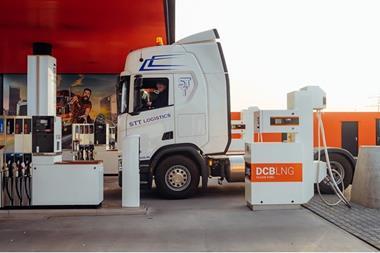
It seems that yet again a quick look at the Forecourt Trader’s news pages reveals another story highlighting various illegal activities associated with the hand-car-wash (HCW) brigade.
These reports are now so frequent that they usually don’t make it into the general media anymore – just a short piece in what’s left of local newspapers, or maybe a quick mention on regional TV news programmes, especially if the sentences involved happen to be quite lengthy. But it’s a subject that concerns many petrol retailers - for two quite distinct reasons.
Firstly, if your forecourt still has a rollover wash bay, does that rollover wash see much use? Chances are that if there’s a HCW within a mile or two of your site, that expensive capital asset in the bay is probably gathering dust for most of the week. Of course, some potential customers will say that they always get a better wash by hand than they’d see from your machine, while others would just look at the price of each service and think that paying maybe a fiver to the bloke who’s just dried their car is simply better value for money than spending the same (or more) to put that car through any machine. And to a certain extent that’s a problem for which the petrol retail industry has to look at itself: go back (say) 10 years to a time before the HCWs sprang up like the plague, and frankly there were a great many petrol forecourts where the price of ‘top washes’ had reached silly figures, especially on those sites where the machines were either old, or simply weren’t being looked after properly. It wasn’t unknown to see customers who’d just exited the wash stopping on another part of the forecourt to try and clean up the bits that the machine had missed. Or for that matter, for some customers to put their car through the machine twice: once on a basic (cheap) programme to get rid of as much dirt as possible, then back again on a higher programme to try and get the ’showroom gloss’ finish that they were expecting.
Okay, it was the ‘old days’, and not only has new equipment improved somewhat since then, programme prices haven’t generally continued to rise (presumably because of the competition from the HCWs) as much as they used to. What strikes me these days when I visit forecourts is that very few of those that still have a working rollover seem to make any effort at all to actually promote the thing. They’ve simply given up trying to compete. Might be time for both the wash manufacturers and retailers to try some fresh marketing.
The second reason why some petrol retailers take the whole HCW subject seriously – or at least, should do – is that they long ago decided that if they couldn’t beat them, they’d join them. Any odd spot of land around the forecourt would do; even inside a wash bay that might still contain a redundant rollover machine, or that old workshop area around the back that was really only a rodent-infested store room waiting for a shop extension that never came. Almost invariably, the site owners who went down this avenue didn’t actually want the hassle of employing the people who were going to work in the wash business. So, they simply sub-let the space to someone else – someone who would be ‘responsible’ for ‘employing’ their own workers, paying their own VAT and income tax, and all the rest. The wash sales wouldn’t go through the site POS equipment, and the site owner would simply charge their tenant a fixed monthly rental fee for the space, with or without any share of the turnover. All very simple and clean: what could possibly go wrong?
Actually, several things. Let’s start with the easy ones, and we’ll assume that the whole sub-let business is in itself intended to be completely legitimate. The first thing to think about is whether the forecourt owner/operator is actually the property freeholder. In some cases they may not be, since they’re actually operating on a long lease from the entity that owns the land. And some leases may simply not allow any part of the land to be sub-let without the express consent of the freeholder. Break that condition and you may find some letters arriving from the freeholder’s legal advisors: stress at best, expensive at worst.
Continuing with a ‘legit’ business intent, there’s the question of insurance. Think of public liability - as far as the customer is concerned, anything bad that might happen to them, their children and pets, or their vehicle, is your responsibility. After all, it’s your forecourt, and they may just have spent some cash at your pumps and in your shop: no point trying to explain that the wash is actually ‘owned’ by someone else. The same question will arise if someone working in the wash should suffer any kind of accident: slip and break a leg on the wet floor, or suffer chemical burns from some nasty wheel-cleaning de-greaser fluid, just for example. Once the ambulance has gone, you’re likely to find that there’s a visit from the Health & Safety Executive; they may decide to prosecute someone after a workplace accident. It’s happened on your premises… So even if everything is above-board, you need to check that you are adequately insured for both public liability and employee liability: even if you don’t consider a car washer to be your ‘employee’.
And then we get into areas that are greyer, some might even use the word ‘murky’. Consider HM Revenue & Customs. You’re obviously going to declare whatever income you receive from the sub-let: rent, profit share, call it what you will. You’ll show it in your accounts and pay tax on your profits. Yes, you will, because you’re an honest business owner and you declare your income. However, what about the person to whom you’ve sub-let part of your premises? Are they keeping proper payroll records and paying over the income tax, NIC’s and pension contributions to HMRC that they’ve deducted from their workforce? No? I see, they’re all ‘self-employed’. HMRC may have any reason whatsoever to make any kind of enquiry about anything connected with that sub-business: from questions about VAT registration, to payroll deductions and everything in between. And if they can’t identify or contact whoever is supposed to be responsible for that activity and any potential payments arising from it, then guess who they’ll ask next. Try telling them that everyone there is self-employed… The activity is on your premises, and apparently seems to be part of your customer offer.
Last, but by no means least, we come to some very deep murky areas indeed. We’re talking about whether people working on your premises have the appropriate residency and work permits for the UK; whether in fact they’re even here voluntarily. Have you kept a record of your due-diligence to establish these facts? Are you aware of the Money Laundering Regulations? By now you’ll probably have gotten the general idea – they’re working on your premises, etc. And in this area, there are a stack of laws under which you may end-up being the person facing prosecution – some of them criminal - with severe penalties for those deemed guilty of breaking them.
If you are sub-letting any part of your forecourt to anyone, for any reason, at the very least check your insurance cover, don’t work on a cash-basis, and preferably deal only with a properly-registered company that produces normal business paperwork. Or maybe it’s time to look at investing in a new rollover wash.

































No comments yet